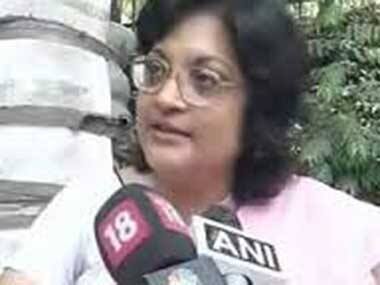Delhi University Teachers’ Association president Nandita Narain has said the Four-year undergraduate programme was introduced by the Delhi University without proper thought or dialogue. In an interview to Firstpost, she says the programme would have killed education, and welcomes the UGC directive. What are the dialogues and the procedures that were followed before FYUP was started in DU? [caption id=“attachment_1584873” align=“alignleft” width=“380”]  DUTA president Nandita Narain. Photo credit IBNLive[/caption] First of all there had to be several committees to structure the course. But there was never a dialogue between the authority and the Executive council or the faculty council. The first time anyone in the public domain saw the proposal was on 24 December 2012. And it was taken up as an agenda on 21 December 2012. Only three days to take such a big decision? Whereas standard time period for any decision-making is seven days from the meeting in which the agenda is taken up. On 26 December 2012, at an EC meeting, the item was not taken up but within a week we were advised to make the syllabus. Even a tailor will take longer. Secretly hand-picked teachers were selected to create a syllabus. They were absolutely rubbish. We met the Prime Minister and the President. We met the UGC also. The UGC had to be informed six months beforehand, that too was not done. The faculty meeting for passing the syllabus was a farce. In the meeting 40 sets of syllabus were passed within an hour. During the meetings no agenda items were taken up. Only a bunch of papers were kept on the table and the faculty was ordered to pass them. If anyone raised an opposing voice there would be repressive tactics by the authorities. Apart from this contention that there was no dialogue, how will the programme impact students? It is a stupid programme. Unnecessarily you are extending one year. Now not every student can afford to have one more year of education in a college. And by extending a three-year programme by another year you are expanding the student population by almost 33 percent. And after the quotas are fulfilled and with this expanded student base, it means the number of students have gone up by almost 200 percent. Now where is the financial means to provide even standard education to these pupils? The laboratories are not equipped. The classrooms are not big enough. Such a decision without thinking about the financial aspect of it is disastrous. But what does it means in terms of education? What was the impact on the quality of education? This programme was going to kill education. There were 12 papers on foundation courses, which were mandatory for students from all streams. Now why would you waste the time by studying subjects which for an individual student had no value in the course of a specific programme? It was a waste of their time. And not that these courses were being taught by experts. Say a physics teacher was teaching moral science. Can anything be worse? In my class the presence of students came down to a mere 40 percent, which has never happened in my 33-year career in St Stephen’s College. You have in the past accused the University being a fiefdom of the then government. Can you elaborate? What else if it’s not a fiefdom of a whimsical ministry? Dinesh Singh, the VC, was a complete stooge. And in the Ministry of HRD, first Mr Sibal and then Pallam Raju just wanted to carry out mindless operations and the VC was just happy to comply. It’s all a part of a bigger process. Now that education has become one of the most successful industries, all the foreign universities are looking forward to invest in India. But no one is willing to spend on infrastructure and expansion instead the government was just creating the platform for them at the cost of the students. Apart from that any dissenting voices were silenced by oppression. The DUTA was never called for a meeting with the VC in the last four years. It’s only after Smriti Irani assumed the office that DUTA had been called to be a stakeholder. Now that the UGC has intervened, what it means for students who are confused about the admission? We at St Stephen’s have decided that no final interview will be held before a firm decision comes out. But other colleges have to be careful regarding this. Otherwise how will the students understand what they are applying for? In other colleges they follow a cut-off marks procedure. And we have to make sure that the old graduation courses are brought back. And at the same time these foundation courses have to be chucked out of the syllabus. But what will the colleges do with the students who are already enrolled under FYUP? We are proposing some corrective measures for that. Technically, the specialisation courses should be taught in the second year and third year, so that students can have their honours degree by the end of their third years. It will be as normal as other colleges in the rest of the country.
DUTA president Nandita Narain welcomes the UGC directive to the Delhi University which, she says, should revert to the three-yera degree course soon.
Advertisement
End of Article


)
)
)
)
)
)
)
)
)



